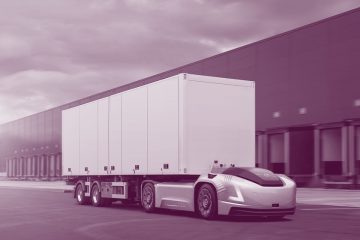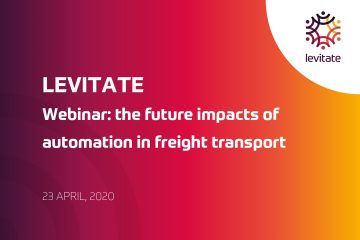Nearly 40 persons attended the LEVITATE webinar focusing on freight, which took place on 31 January 2022. Two freight case studies presented by researchers from LEVITATE partner, the Austrian Institute of Technology (AIT), were complemented by a contribution from the logistics platform ALICE, with which LEVITATE is cooperating in terms of sharing knowledge and dissemination activities.
The first of the LEVITATE freight case studies, presented by Bin Hu of AIT, covered an automated parcels delivery system in urban areas, for which the city of Vienna provided the test area. The main conclusions suggest that:
- Electric vehicles will reduce the (local) emissions, but not the mileage
- Consolidation reduces both, but is difficult to implement
- Automation facilitates consolidation and reduces operating costs
The second freight case study addressed the impacts of truck platooning on urban bridges and was introduced by Marian Ralbovsky, AIT. The following conclusions were reached:
- Truck platooning can significantly impact urban highway bridges
- Effects depend on traffic composition (portion of trucks in traffic)
- Mostly only bridges with large spans (river crossings) are expected to be affected
- Intelligent access control can ensure bridge safety under platooned traffic
The final presentation was given by Fernando Liesa, Secretary General of Alice, which is a European Technology Platform bringing together stakeholders from the logistics sector. Fernando shared some of the main findings from projects and members activities that are relevant to CCAM. Among the useful insights provided are:
- According to a survey by the Award project on incentives to use automated trucks, the most popular answer was ‘improve vehicle utilisation’
- The shortage of truck drivers is a problem that CCAM may be able to help address
The ‘freight case studies webinar’ webinar recording can be found on this web page and directly on YouTube »



